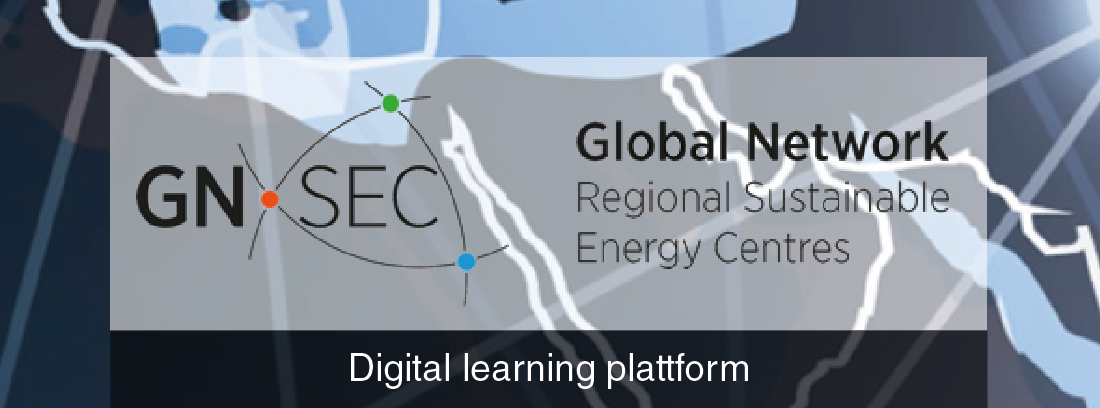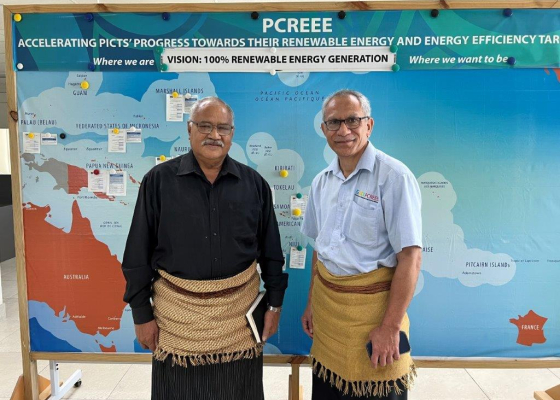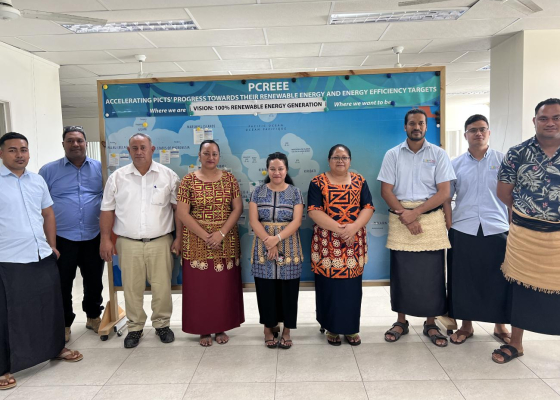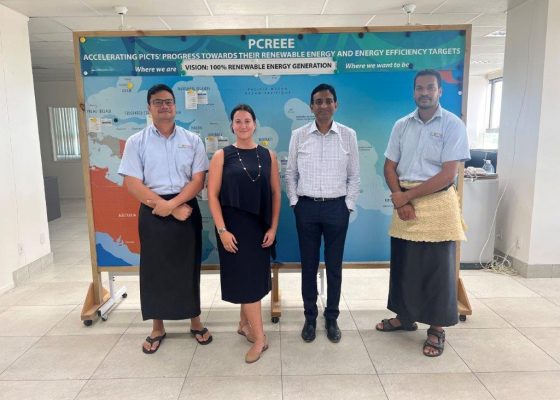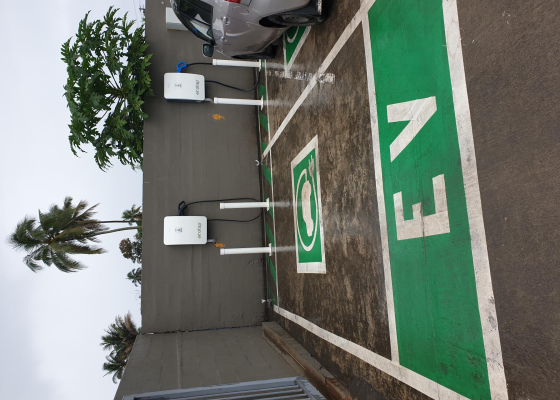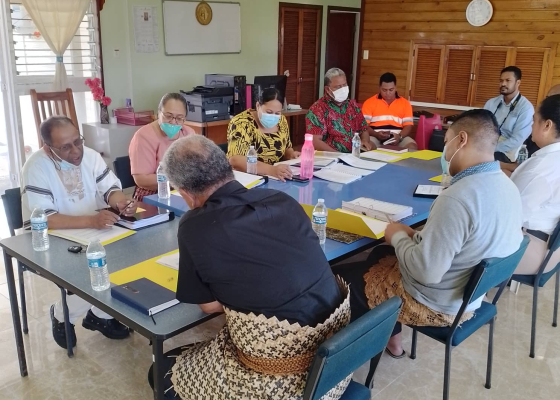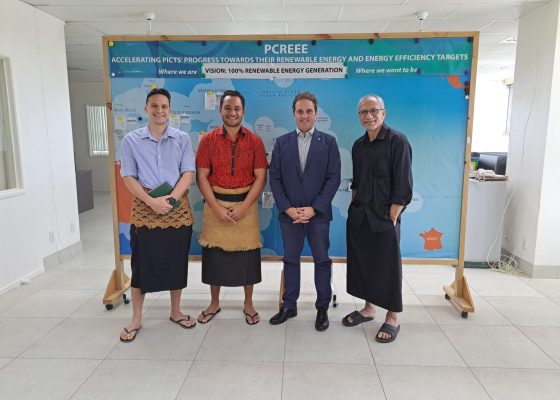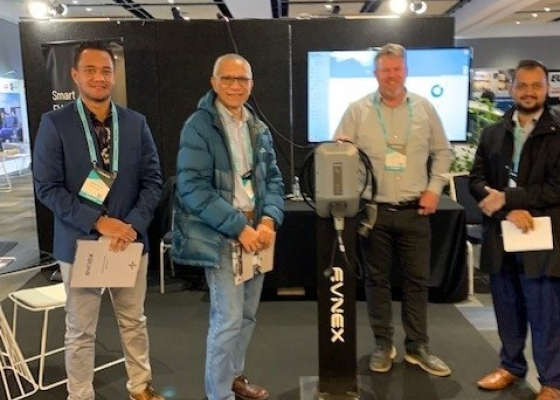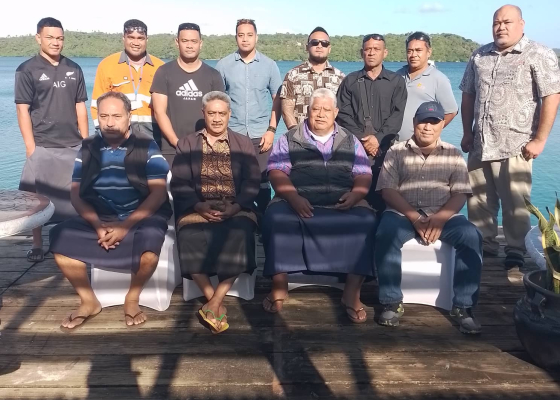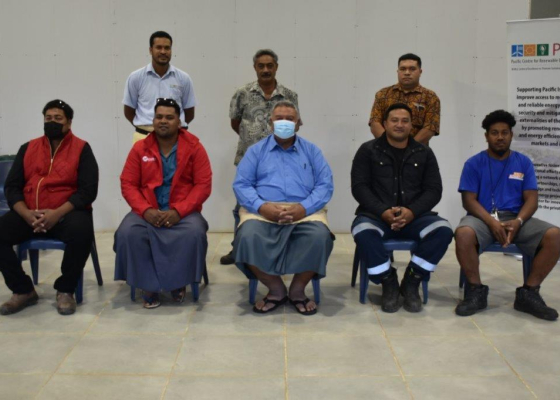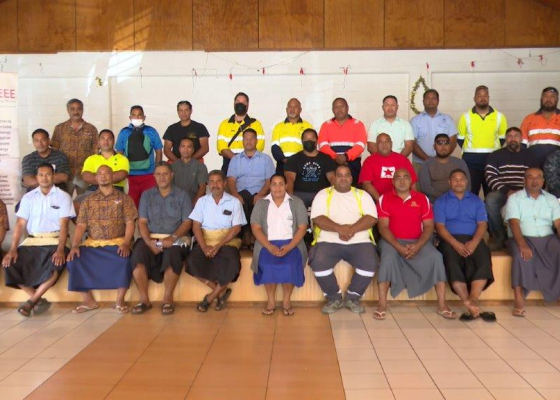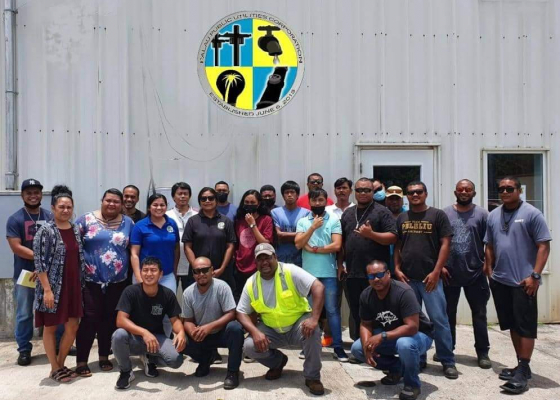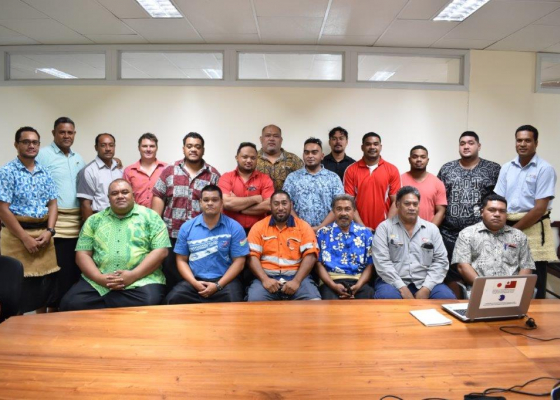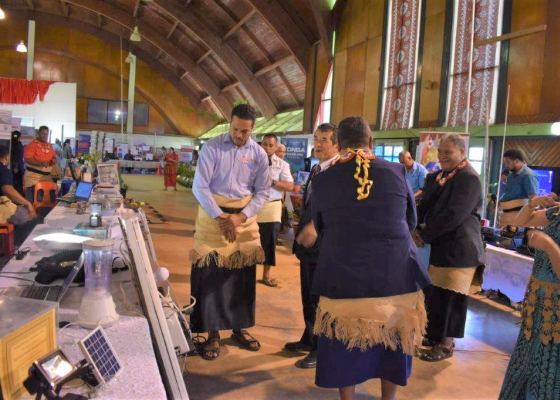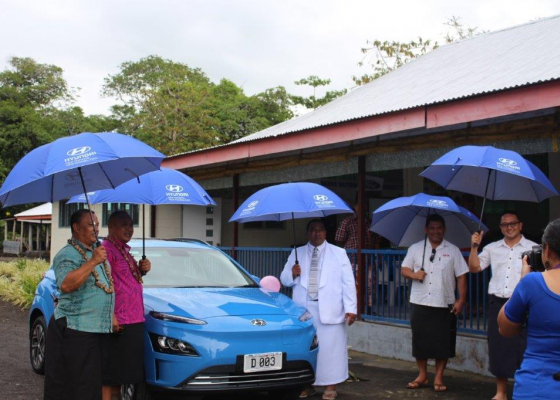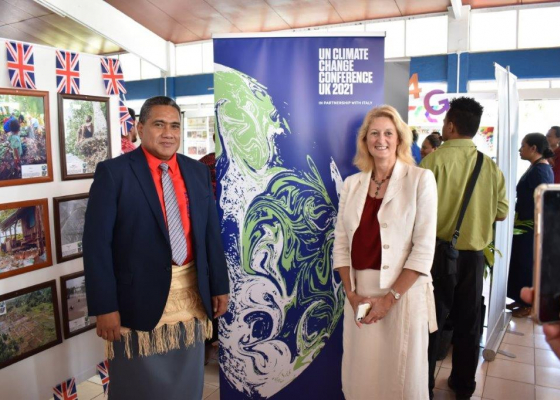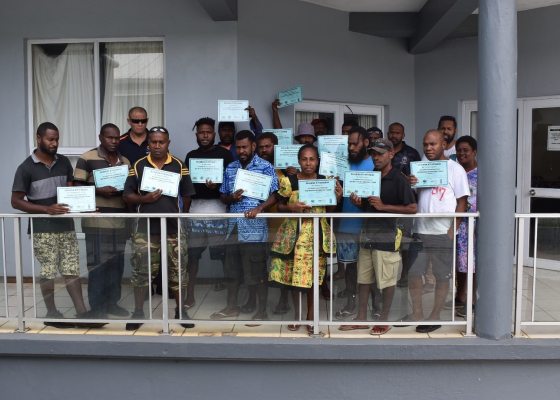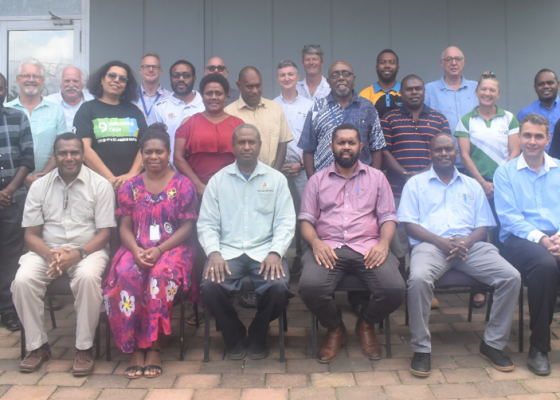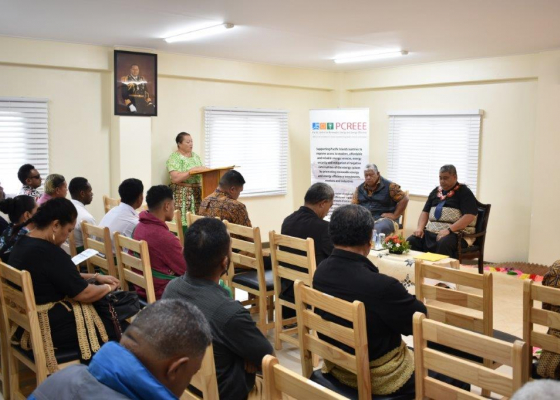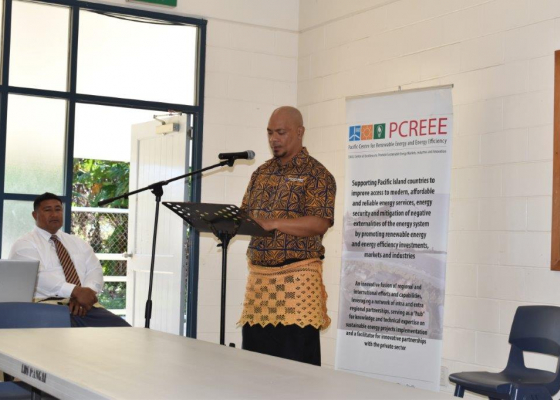Fiji Country Report DRAFT
Fiji is a tropical archipelago located between Melanesia and Polynesia. The Fiji islands are situated 3,000 km east of Australia in the Pacific Ocean at 16-20°S latitude and 178°E-178°W longitude. Fiji comprises of over 300 named islands, which take up an ocean area of some 650,000 km² and a total land area of 18,274 km2 (Evenhius & Bickel, 2005). There are two large islands, Viti Levu (10,388 km²) and Vanua Levu (5,535 km²), two mid-sized islands, Taveuni (434km²) and Kadavu (408km²), and many smaller islands, 97 of which are inhabited (Parham, 1972; Evenhius & Bickel, 2005). The highest peak in Fiji, Mt. Victoria reaches 1324m a.s.l.
Consultation Meeting Objectives
As the PACTVET is about the Education, Climate Change and Sustainable Energy sectors, there was a need for an effective coordination at the national level to network with other relevant associations and workers in the country to empower TVET based training. In July2015, there was an in-country consultative workshop conducted to develop the training needs and gap analysis in which the activity was intended to gather specific inputs from local stakeholders on the priority needs on both SE and CCA. SE included areas such as refrigeration, renewable energy technology installation, motor mechanic, electrical wiring, sustainable sea transport, etc. CCA also included food security (agriculture, fisheries); disaster risk reduction; vulnerability and adaptation assessment; water security; forestry and project management.
Energy Sector
The government’s vision for Fiji’s energy sector, as set out in the Roadmap for Democracy and Sustainable Socio-Economic Development 2009-2014, is for a resource efficient, cost effective, and environmentally sustainable energy sector. This should ensure that communities have secure access to affordable and reliable energy supplies.
Renewable Energy
Fiji has progressively developed a thriving market for grid connected PV systems aimed at large commercial energy users spearheaded by prominent companies such as CBS Power Solutions and Sunergize Group.
Solar water heating
Solar water heaters are widely used throughout Fiji by private residences, hotels, resorts and businesses.
Wind power
Fiji has one major windfarm site, a 10MW windfarm consisting of 37x 275kW turbines near Sigatoka on Viti Levu. The Fiji Electricity Authority has been carrying out wind resource measurements at 8 different sites around the country. As such, there is potential for expansion of this industry, though FEA does not anticipate commissioning any new windfarms between 2013 and 2017.
Hydropower
Hydropower currently accounts for over 60% of all electricity generation in Fiji, with 85MW of installed capacity, with a further 57MW planned between 2013 and 2017 on Viti Levu.
Micro-Hydro Power
The installed capacity of micro/mini hydro is around 1000 kW, 80% of which is accounted for by the FEA’s Wainikeu system in Vanua Levu. Micro-hydro (under 100 kW) and mini-hydro (100– 1 500 kW) potential has been studied by the FDOE at sites near communities not served by the FEA. Surveys have been conducted at 38 of these smaller sites on six islands showing a total of 3.2 MW of likely capacity that may be technically and economically feasible, while 20 more sites totalling about 0.4 MW still require extra monitoring.
Bioenergy (biomass/biogas)
Fuelwood was used as the primary cooking fuel by 20% of the Fijian population in 2007. Larger biogas and biomas projects are planned for Fiji. This includes an additional 100MW of biomass combustion plant on Viti Levu and 10MW of Biogasification generation on Vanua Levu. Sugar and Cassava crops are also new in the market to be used for the production of transport and manufacturing fuels. Fiji Sugar Corporation in Lautoka is currently working on Sugar cane by-products as biofuel
Geothermal
There are 8MW of geothermal plant being planned for commissioning by FEA between 2013 and 2017.
Energy Efficiency
The Fiji government has promoted efficient use and generation of energy as part of its energy policy. This is rolled out through awareness raising and education on energy efficiency; through energy auditing and energy labelling. The department of energy carries out energy audits and the service has also grown amongst the private sector.
Major Projects
A. Pacific Power Solution
The focus of this project is to use petroleum fuel more efficiently and reduce the utilization of petroleum consumption and increasing in the use of renewable energy.
B. WASH Program - Program Area 1: Water, Sanitation and Hygiene (WASH)
Activities focused on produce WASH educational resources, deliver sustained WASH training in communities and schools, support communities in construction and maintenance of simple water supply and sanitation options, improve means of testing water quality and link results to action.
Climate Change Sector
Pacific Centre of Environment and Sustainable Development (PACE-SD USP)
PaCE-SD’s areas of expertise lie in environment, climate change and sustainable development. Within these broad areas, focus is mainly towards:
- Environmental impact assessment and sustainable environmental assessment
- Disaster risk management
- Climate change modeling and analysis
- Climate change vulnerability and adaptation
- Waste management and minimization
- Watershed and natural resource management
Currently projects being administered through PACE-SD include:
- PacTVET project jointly with SPC
- Global Climate Change Alliance capacity building, community engagement and applied research (EU-GCCA)
- Future Climate Leaders and Pacific Emerging Environment Leaders Collaboration (AusAID)
- Coastal Community Adaptation Project (USAID)
- Coordination and Support Action Project (EU-ECOPAS)
- Climate Change Game (GIZ)
- Climate Services (US Embassy)
The centre is renowned to be the hub of facilitating higher education courses ranging from levels 8-10 which starts of at Postgraduate Certificate. Climate change related courses are most suitable to be offered from this centre especially the ones planned to be facilitated at regional level.
NATIONAL POLICIES AND FRAMEWORK
Education
The education sector in Fiji falls under the Ministry of Education that governs all educational training and facilitation, they are one of our key stakeholders in administering and monitoring of mainstream and TVET education in Fiji. Fiji has a total of 125 Secondary schools with 51 Secondary/Vocational schools with 9 Technical Vocational centres established to cater for Secondary levels registered with the Ministry of Education and 35 Tertiary training institutions registered with the Fiji Higher Education Commission. Within the 35 training providers, there are 3 universities established and providing extensive courses closely related to the training needs contemplated in this EU PACTVET project.
Fiji Higher Education Commission (FHEC)
The Higher Education Commission is a governing body that was appointed by the Minister for Education in 2010 of its governing legislation known as the Higher Education Regulations 2009 and Higher Education (Qualifications) Regulations 2010 are subsidiary legislations.Currently, the University of the South Pacific, Fiji National University and University of Fiji are working with the FHEC to process their respective institutional registration, recognition and Accreditation which simply means that all course offered by the three universities are currently reviewed and reformed to meet the standards and guidelines established by the FHEC as they have been mandated to coordinate and act as an advisory body to the government of Fiji to monitor all education and TVET training providers.
USP – Faculty of Science Technology & Environment
The University of the South Pacific - FSTE is an intellectual centre for excellence in Science, Technology and Environment for Pacific based research, consultancy and educational provision. It is made up of 5 schools; Geography-Earth Science and Environment, Marine, Biological & Chemical Science, Mathematics & Computing, Engineering & Physics with two prestigious institutes; Marine Resources and Applied Science. Courses ranging from Certificate levels to Doctorate which start from Level 4 to 10 according to FQF. The courses offered at the FSTE ties well in line with the EU PACTVET objectives of setting up to offer courses in Biodiversity at Diploma and Degree levels based on the existing programs currently offered with the facilities and qualified staff to teach available.
Fiji National University (FNU)
The former Fiji Institute of Technology (FIT) is now part of the FNU College of Engineering, Science and Technology and is the University's Samabula Campus offering TVET courses ranging from Levels 3 – 7 (according to the Fiji Qualification Framework - FHEC) in Architectural & Civil Construction, Automotive, Mechanical, Electrical, Agricultural Engineering and Maritime including a few sustainable energy related course such as Renewable Energy. FNU has progressively proven its competent participation in striving to become the premier university in providing quality TVET education locally and widening its scope to the Pacific region establishing relations in Tonga, Tuvalu, the Solomon’s and Vanuatu. Ideally, based on the university’s facilitation programs, the EU PACTVET project could aim to setup baseline courses at Levels 3-5 especially for Sustainable Energy.
Training Needs and Gap Analysis
Based on the consultative meetings analysis and training needs and gaps analysis captured for Fiji, there are a some suggestions that are highlighted below that would provide insights for further deliberation and decision making.There are needs and gaps identified in the industry and the market to be strengthend through developing appropriate trainings in certain areas:
Sustainable Energy
- Solar PV
- Refrigeration
- Wind turbine
- Hydro systems
- Biomass biogas
- Sea Transport
- Traditional Construction
Climate Change
- Disaster Risk Management
- Integrated farming
- Biodiversity conservation
- Project management
*To learn more about the EU PacTVET project in Fiji, please see attached country report
Upcoming Events
-
03/25/2026 to 03/26/2026
-
03/26/2026 to 03/27/2026
-
04/09/2026 to 04/10/2026
-
04/20/2026 to 04/24/2026
-
04/27/2026






